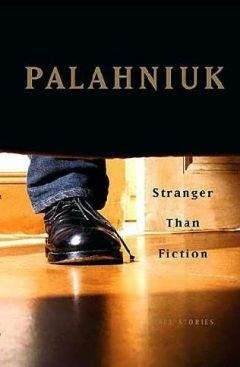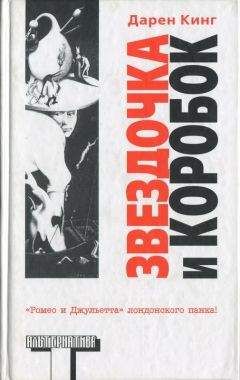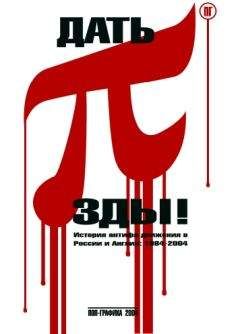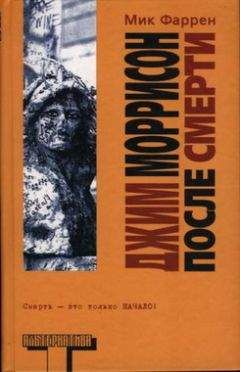Chuck Palahniuk - Stranger Than Fiction (True Stories)

Скачивание начинается... Если скачивание не началось автоматически, пожалуйста нажмите на эту ссылку.
Жалоба
Напишите нам, и мы в срочном порядке примем меры.
Описание книги "Stranger Than Fiction (True Stories)"
Описание и краткое содержание "Stranger Than Fiction (True Stories)" читать бесплатно онлайн.
"Full of wonderful moments…Palahniuk's voice is so distinctive and intimate-he writes as though he is recounting a great story to a close friend." — Los Angeles Times
"Step into Palahniuk's dark worldview and watch for what crawls out. These stories are true to him and no one else." — The Oregonian
“One of the oddest and most oddly compelling collections to come along for some time.” —The Milwaukee Journal Sentinel
“In Chuck Palahniuk’s world, the ride is fast, often disturbing, and there is never any holding back.” —The New Orleans Times-Picayune
“Eccentric, idiosyncratic, and often entertaining.” —The Onion
"Priceless grace notes from an exceptionally droll and sharp-eyed observer." — The New York Times
“Rarely does a collection of essays continually resonate with a main theme and accumulate a weight that would lead you to call it a great book. . This is a pretty great book.” —The Seattle Times
"The book's lurid appeal rests largely on being let in on Palahniuk's secrets, the raw material for much of his fiction. . Acts that give spice to his novels are made more menacing when encountered in the real world." — Black Book
Technology. For a small investment, you can be published on the Internet, accessible to millions of people worldwide. Printers and small presses can provide any number of on-demand hard-copy books for anybody with the money to self-publish. Or subsidy publish. Or vanity publish. Or whatever you want to call it. Anybody who can use a photocopy machine and a stapler can publish a book. It's never been so easy. Never in history have so many books hit the market each year. All of them filled with the third factor:
Material. As more people grow old, with the experience of a lifetime to remember, the more they worry about losing it. All those memories. Their best formulas, stories, routines for making a dinner table burst into laughter. Their legacy. Their life. Just a touch of Alzheimer's disease, and it could all disappear. Besides, all our best adventures seem to be behind us. So it feels good to relive them, to share them on paper. Organizing and making all that flotsam and jetsam make sense. Wrapping it up, neat and tidy, and putting a nice bow on top. The first volume in the three-volume boxed set that will be your life. The "best of" NFL highlights tape of your life. All in one place, your reasons for doing what you did. Your explanation why, in case anyone wants to know.
And thank God for factor number four:
Education. Because at least we all know how to keyboard. We know where to put the commas… kind of. Pretty much. We have automatic spell-checking. We're not afraid to sit down and take a swing at the job of book writing. Stephen King makes it look so easy. All those books. And Irvine Welsh, he makes it look like fun, the last place you can do drugs and commit crimes and not get arrested, or fat, or sick. Besides, we've read books all our lives. We've seen a million movies. In fact, that's part of our motivation, the fifth factor:
Disgust. Except for maybe six movies at the video store, the rest is crap. And most books, it's the same. Crap. We could do better. We know all the basic plots. It's all been broken down by Joseph Campbell. By John Gardner. By E. B. White. Instead of wasting more time and money on another crappy book or movie, how about you take a stab at doing the job? I mean, why not?
Then, sorry, your seven minutes is up.
Okay, okay, so maybe we're headed down a road toward mindless, self-obsessed lives where every event is reduced to words and camera angles. Every moment imagined through the lens of a cinematographer. Every funny or sad remark scribbled down for sale at the first opportunity.
A world Socrates couldn't imagine, where people would examine their lives, but only in terms of movie and paperback potential.
Where a story no longer follows as the result of an experience.
Now the experience happens in order to generate a story.
Sort of like when you suggest: "Let's not but say we did."
The story-the product you can sell-becomes more important than the actual event.
One danger is, we might hurry through life, enduring event after event, in order to build our list of experiences. Our stock of stories. And our hunger for stories might reduce our awareness of the actual experience. In the way we shut down after watching too many action-adventure movies. Our body chemistry can't tolerate the stimulation. Or we unconsciously defend ourselves by pretending not to be present, by acting as a detached «witness» or reporter to our own life. And by doing that, never feeling an emotion or really participating. Always weighing what the story will be worth in cold cash.
Another danger is this rush through events might give us a false understanding of our own ability. If events occur to challenge and test us and we experience them only as a story to be recorded and sold, then have we lived? Have we matured? Or will we die feeling vaguely cheated and shortchanged by our storytelling vocation?
Already we've seen people use «research» as their defense for committing crimes. Winona Ryder shoplifting in preparation to play a character who steals. Pete Townsend visiting Internet kiddie-porn websites in order to write about his own childhood abuse.
Already our freedom of speech is headed for a collision with every other law. How can you write about a sadistic rapist «character» if you've never raped anybody? How can we create exciting, edgy books and movies if we only live boring, sedate lives?
The laws that forbid you to drive on the sidewalk, to feel the thud of people crumbling off the hood of your car, the crash of bodies shattering your windshield, those laws are economically oppressive. When you really think about it, restricting your access to heroin and snuff movies is a restriction of your free trade. It's impossible to write books, authentic books, about slavery if the government makes owning slaves illegal.
Anything "based on a true story" is more salable than fiction.
But, then, sorry, your seven minutes is up.
Of course, it's not all bad news.
There's the talk-therapy aspect to most writers' workshops.
There's the idea of fiction as a safe laboratory for exploring ourselves and our world. For experimenting with a persona or character and social organization, trying on costumes and running a social model until it breaks down.
There is all that.
One positive aspect is, maybe this awareness and recording will lead us to live more interesting lives. Maybe we'll be less likely to make the same mistakes again and again. Marry another drunk. Get pregnant, again. Because by now we know this would make a boring, unsympathetic character. A female lead Julia Roberts would never play. Instead of modeling our lives after brave, smart fictional characters-maybe we'll lead brave, smart lives to base our own fictional characters on.
Controlling the story of your past-recording and exhausting it-that skill might allow us to move into the future and write that story. Instead of letting life just happen, we could outline our own personal plot. We'll learn the craft we'll need to accept that responsibility. We'll develop our ability to imagine in finer and finer detail. We can more exactly focus on what we want to accomplish, to attain, to become.
You want to be happy? You want to be at peace? You want to be healthy?
As any good writer would tell you: unpack "happy." What does it look like? How can you demonstrate happiness on the page-that vague, abstract concept. Show, don't tell. Show me "happiness."
In this way, learning to write means learning to look at yourself and the world in extreme close-up. If nothing else, maybe learning how to write will force us to take a closer look at everything, to really see it-if only in order to reproduce it on a page.
Maybe with a little more effort and reflection, you can live the kind of life story a literary agent would want to read.
Or maybe… just maybe this whole process is our training wheels toward something bigger. If we can reflect and know our lives, we might stay awake and shape our futures. Our flood of books and movies-of plots and story arcs-they might be mankind's way to be aware of all our history. Our options. All the ways we've tried in the past to fix the world.
We have it all: the time, the technology, the experience, the education, and the disgust.
What if they made a movie about a war and nobody came?
If we're too lazy to learn history history, maybe we can learn plots. Maybe our sense of "been there, done that" will save us from declaring the next war. If war won't "play," then why bother? If war can't "find an audience." If we see that war «tanks» after the opening weekend, then no one will green-light another one. Not for a long, long time.
Then, finally, what if some writer comes up with an entirely new story? A new and compelling way to live, before…
Sorry, your seven minutes is up.
Demolition
They come over the hills, sacrifices on their way here to die.
Today is Friday, the thirteenth of June. Tonight the moon is full.
They come here covered in decorations. Painted pink and wearing huge pig snouts, their floppy pink pig ears towering against the blue sky. They come, done up with huge yellow bows made of painted plywood. They come, painted bright blue and costumed to look like giant sharks with dorsal fins. Or painted green and crowded with little space aliens standing around slant-eyed under a spinning silver radar dish and flashing colored strobe lights.
They come, painted black with ambulance light bars. Or painted with brown desert camouflage and hand-drawn cartoons of missiles roaring toward Arabs riding camels. They come trailing clouds of special-effects smoke. Shooting cannons made from pipe and blasting black-powder charges.
They come with names like Beaver Patrol and the Viking and Mean Gang-Green, from dryland wheat towns such as Mesa and Cheney and Sprague. Eighteen sacrifices total, they come here to die. To die and be reborn. To be destroyed and be saved and come back next year.
Tonight is about breaking things and then fixing them. About having the power of life and death.
They come for what's called the Lind Combine Demolition Derby.
The where is Lind, Washington. The town of Lind consists of 462 people in the dry hills of the eastern reaches of Washington State. The town centers around the Union Grain elevators, which run parallel to the Burlington Northern railroad tracks. The numbered streets-First, Second, and Third-also run parallel to the tracks. The streets that intersect with the tracks begin with N Street as you enter town from the west end. Then comes E Street. Then I Street. All in all the streets spell out N-E-I–L-S-O-N, the family name of the brothers James and Dugal, who plotted the town in 1888.
The main intersection at Second and I is lined with two-story commercial buildings. The biggest building downtown is the faded pink art deco Phillips Building, home of the Empire movie theater, closed for decades. The nicest one is the Whitman Bank Building, brick with the bank's name painted in gold on the windows. Next door is the Hometown Hair salon.
The landscape for a hundred miles in any direction is sagebrush and tumbleweed, except where the rolling hills are plowed to raise wheat. There, dust devils spin. Train tracks connect the tall grain elevators of farm towns such as Lind and Odessa and Kahlotus and Ritzville and Wilbur. At the north end of Lind tower the concrete ruins of the Milwaukee Road train trestle, dramatic as a Roman aqueduct.
There's no record of where the name Lind came from.
At the south end of town are the rodeo grounds, where bleacher seats line three sides of a dirt arena and jackrabbits graze in a gravel parking lot, around the dented and rusting hulks of retired demolition-derby contestants.
The what are combines, the big, slow machines used to harvest wheat. Each combine consists of four wheels: two huge chest-high wheels in front and two smaller, knee-high, wheels in back. The front wheels drive the machine, pulling it along. The rear wheels steer. In a pinch-say, when somebody rips off your rear wheels-you can steer with your front ones. Those front drive wheels each have brakes. To turn right you just stop your right wheel and let the left keep going. To turn left you do the opposite.
The front of each combine is a wide, low scoop called a header. It looks a little like the blade on the front of a bulldozer, only wider, lower, and made of sheet metal. It scoops up the wheat. From the header the wheat is sieved and threshed and shot out into a truck. The driver sits up, six feet off the ground, near the engine. Size- and shapewise, it looks very much like a man riding a boxy steel elephant.
Here, your header is what you use to pop another guy's tires. Or rip off his header. Or mangle his drive belts. That's why, in years past, guys filled their header scoops with concrete or welded them with layers of battleship plating or cut them down so they were harder for other combines to hook.
But that's against the rules now. Lots of rules changed after Frank Bren ran over his own father in 1999, broke his leg, and left one huge front wheel parked on top of him. Since then Mike Bren has walked with a limp.
This year Frank is driving number 16, a Gleaner CH painted bright yellow and flapping with American flags and a huge yellow-ribbon bow cut out of plywood. It's christened American Spirit, the Yellow Ribbon. "The adrenaline rush when you're out there, it's just great," Frank Bren says. "It's not quite as good as sex, but it's close. You just love that sound of crushing metal."
The rest of the year Bren drives a grain truck. Dryland wheat ranching means no irrigation and not a lot of money. In the 1980s town fathers were looking for a way to raise cash for Lind's one-hundredth birthday. According to Mark Schoesler, the driver of number 11, a 1965 Massey Super 92 combine painted green and christened the Turtle, "Bill Loomis of Loomis Truck and Tractor was the instigator. He gave guys old combines. He sold them cheap. Traded them. Just whatever kind of deal it took, he helped them. They did so incredibly well that they couldn't quit."
Now, for the fifteenth year, some three thousand people will show up and pay ten bucks apiece to watch Schoesler ram his combine into seventeen others, again and again, for four hours, until only one still runs.
The rules: your header must be at least 16 inches above the ground. You can carry only 5 gallons of gas, and your gas tank must be sheltered in the bulk tank used for wheat at the center of each combine. You can use up to 10 pieces of angle iron to reinforce your rig. You must remove any glass from the cab. You can't fill your tires with calcium or cement for better traction. You must be at least 18 years old and wear a helmet and a seat belt. Your combine must be at least 25 years old. You must pay a $50 entry fee.
The judges give each driver a red flag to fly while he's still in the derby. "You just pull your flag and you're done," says eighteen-year-old Jared Davis, driver of number 15, a McCormick 151. "If your combine breaks down and it's not running anymore and you just can't move, they give you a certain amount of time and you just pull your flag and you're done." On the back end of Davis's number 15 is a hand-drawn cartoon of a mouse flipping the bird. Number 15 is christened Mickie Mouse.
Davis says, "These are just normal people out there for the fun of it. Just everyday working people. You get frustrations out, and you get to crash shit."
Despite all the rules, you can still drink. Tipping back a can of Coors, Davis says, "If you can walk, you can drive."
In the grassy pit-crew area behind the rodeo arena, Mike Hardung is here for his third year, driving Mean Gang-Green, a 1973 John Deere 7700. "My wife worries about me doing this, but I do a lot of crazy things," Hardung says. "Like race lawn mowers-riding lawn mowers. It's a pretty big deal. It's the Northwest Lawnmower Racing Association. We get up to forty miles an hour on riding lawn mowers."
About combine demolition, sitting up that high and crashing a mountain of steel, Hardung says, "It's chaotic. You don't know where you're at. You've really got to watch the weak spots, like the rear end of the combine and the tires. Then just go for the gusto and nail 'em. I'm a hitter."
Подписывайтесь на наши страницы в социальных сетях.
Будьте в курсе последних книжных новинок, комментируйте, обсуждайте. Мы ждём Вас!
Похожие книги на "Stranger Than Fiction (True Stories)"
Книги похожие на "Stranger Than Fiction (True Stories)" читать онлайн или скачать бесплатно полные версии.
Мы рекомендуем Вам зарегистрироваться либо войти на сайт под своим именем.
Отзывы о "Chuck Palahniuk - Stranger Than Fiction (True Stories)"
Отзывы читателей о книге "Stranger Than Fiction (True Stories)", комментарии и мнения людей о произведении.









